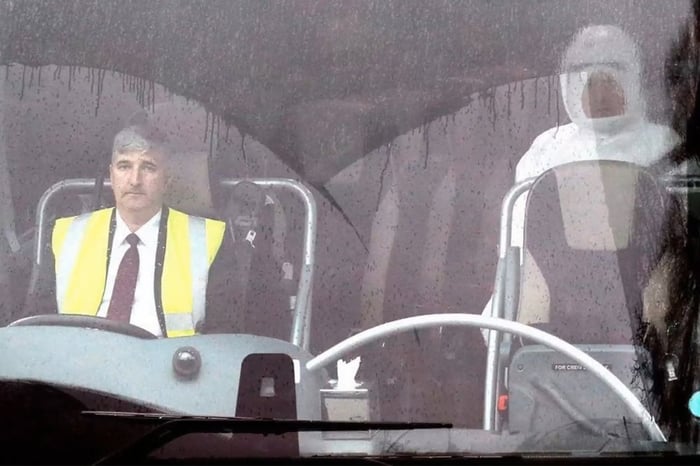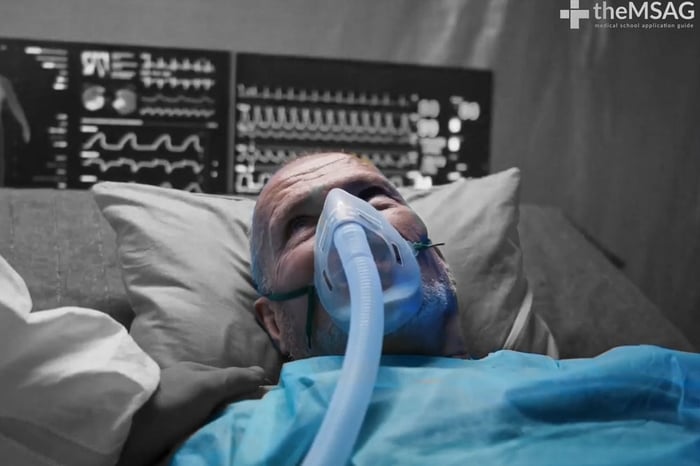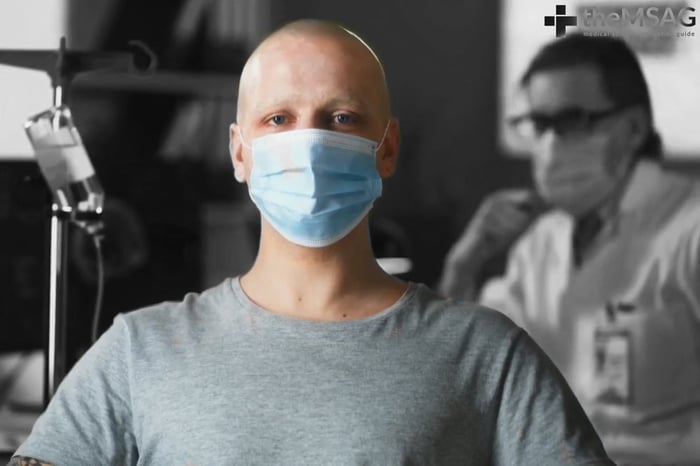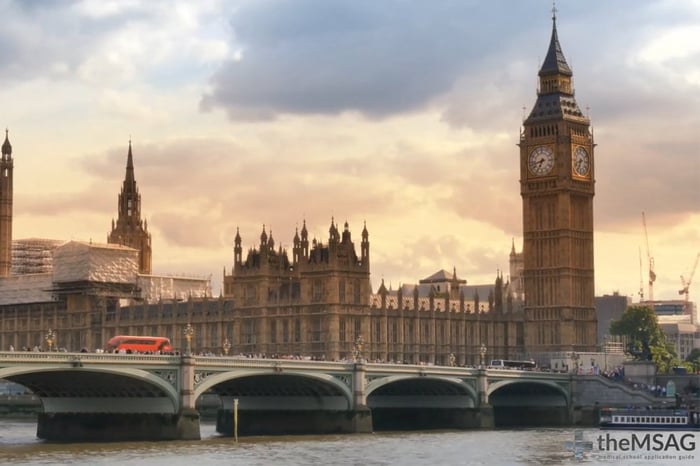
COVID-19 - What the UK Government did right
In our previous article, we covered the timeline of the pandemic and the response to COVID-19 in the UK, as well as a few other European countries. We will now build on your ability to answer interview questions that are asking for your opinion on the UK’s response to COVID-19. For more guidance on how to develop and structure your answers theMSAG delivers a live online medical school interview course. For more information click here.
In this post we will consider some of the positive opinions on how the UK government responded to the pandemic.
Initial handling
The UK government was commended for its initial handling of the pandemic in January and February 2020. The first two cases of COVID-19 were identified in England on the 31st January. They were swiftly transferred to the local infectious diseases unit. On the same day, British nationals were evacuated from Wuhan and quarantined at Arrowe Park hospital. Individuals returning from China, Hong Kong, Malaysia, Korea, Singapore, Taiwan, and Thailand who displayed flu-like symptoms were required to self-isolate for fourteen days.
The UK also adopted contact tracing. Contact tracing is a fundamental method of outbreak control that is used across the world to prevent the spread of infection. It is the process of identifying, assessing, and managing people who have been exposed to a disease to prevent onward transmission. In the UK once someone was confirmed to have a positive test result for COVID-19, the contact tracing team would then seek to identify all people this patient had come into contact with in the last two weeks and give them appropriate self-isolation advice. These measures effectively prevented the early spread of COVID-19 throughout the UK.
As the number of COVID-19 cases began to rise there was fear the NHS would become overwhelmed. The UK government took several measures to increase the number of NHS staff. Thousands of recently retired doctors, nurses, midwives and other healthcare professionals were invited to return to work. Professor Stephen Powis, National Medical Director for the NHS, said “I am humbled by the overwhelming response by the thousands of former doctors returning to the frontline and would like to thank everyone who has signed up, they will make a huge difference at a time when our country needs it most.” On the 24th March, the health secretary announced that 5,500 final year medical students would have their graduation dates brought forward so that they could join the NHS workforce.
In March 2020, the UK government announced plans to build temporary critical care hospitals across the UK to provide extra capacity if hospitals reached their limit. The first to open on the 3rd April was the NHS Nightingale Hospital London. A further seven NHS Nightingale hospitals have since been built. More than thirty thousand additional beds were also made available across the UK. This was achieved by working collaboratively with the private sector to increase capacity and also by cancelling non-urgent treatments. All of this was accomplished in a relatively short time period and was an impressive feat.
Financial Support
Throughout the pandemic the UK government undertook several measures to provide financial support to both individuals and companies. Many businesses have not been able to operate normally due to lockdowns restrictions. The ‘Coronavirus Job Retention Scheme’ was introduced to help such employers who were not able to afford to maintain their workforce. This measure was also known as the ‘Furlough Scheme’. It involved the government paying up to 80% of a furloughed employee’s wages. The scheme reached its peak in May 2020 when 30% of the UK workforce was under furlough. The Chancellor of the Exchequer, Rishi Sunak, said “the furlough scheme has done what it was designed to do: save jobs and help people back to work, where they want to be.”
To aid the shrinking economy, the UK government also input stimulus measures for businesses such as interest-free loans for small businesses and loans for larger companies.
The government also directed £750 million worth of funding towards UK charities, including those that support hospices and domestic abuse victims.
Research
There have been two main branches of research regarding COVID-19: one looking for potential treatments and the other looking at potential vaccines.
The National Health Institute for Health Research funded the University of Oxford to launch a large clinical trial. This trial focused on possible treatments for people in the UK admitted to hospital with severe COVID-19 infection. It was named the Randomised Evaluation of COVID-19 Therapy, or RECOVERY, trial. It involves all major UK hospitals and as many as 3500 doctors, nurses and research staff. On 16th June 2020, the RECOVERY trial discovered the first treatment shown to reduce mortality in COVID 19 patients: a steroid medication called Dexamethasone. This was a significant accomplishment and demonstrated the strength of the NHS. This trial is ongoing and will continue to report its findings.
On the 17th April 2020 the UK government announced the formation of a ‘Vaccine Taskforce’, led by Chief Scientific Adviser Sir Patrick Vallance and Deputy Chief Medical Officer Professor Jonathan Van-Tam. The goals of this taskforce were to provide industry and research institutions with the necessary resources and support to drive the rapid development of a coronavirus vaccine. The UK government ordered 340 million doses of COVID-19 vaccines from several manufacturers with the hope that at least one would prove successful. As of January 2021, two of these vaccines have been approved in the UK. The first was the Pfizer/BioNTech vaccine and the second was the Oxford-Astrazeneca vaccine.
The UK government has also shown a clear commitment to global public health. £500 million was given towards a global vaccine-sharing scheme, designed to ensure fair distribution of COVID-19 treatments around the world. Furthermore the Prime Minister, Boris Johnson, has also pledged £340 million to the World Health Organisation over the next four years; a 30% increase from previous years.
Vaccines
The UK was the first country to approve a COVID-19 vaccine that was tested in a large scale clinical trial. The Medicines and Healthcare products Regulatory Agency (MHRA) approved the Pfizer/BioNTech vaccine on the 2nd December 2020. This enabled the UK to start its immunisation campaign with Margaret Keenan becoming the first individual to receive the Pfizer/BioNTech vaccine. She was the first individual in the world to receive a COVID-19 vaccine outside of a clinical trial. MHRA Chief Executive, Dr June Raine, said “We are globally recognised for requiring high standards of safety, quality and effectiveness for any vaccine. Our expert scientists and clinicians worked tirelessly, around the clock, carefully, scientifically, robustly and rigorously poring over hundreds of pages and tables of data, methodically reviewing the data.”
Summary
We hope this post has given you a helpful overview of the key points that support the UK government’s handling of the COVID-19 pandemic. However remember that when answering a question at your medical school interview, you will need to show that you have an understanding of both sides of the situation. At theMSAG we offer 1-on-1 medical school interview coaching sessions with an experienced tutor who will ask you tailored questions and provide constructive feedback to help you improve your interview answers.
In our next post, we will cover the critical opinions of the UK governments COVID-19 response.



